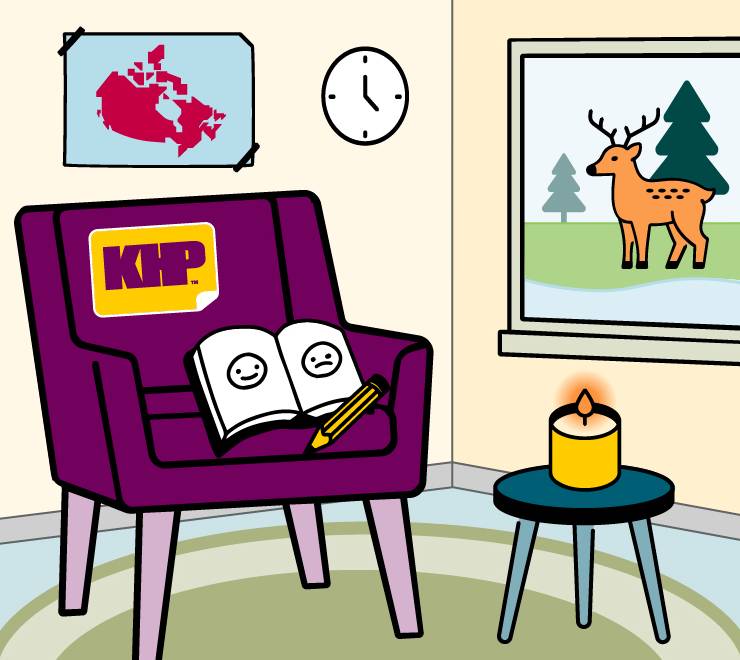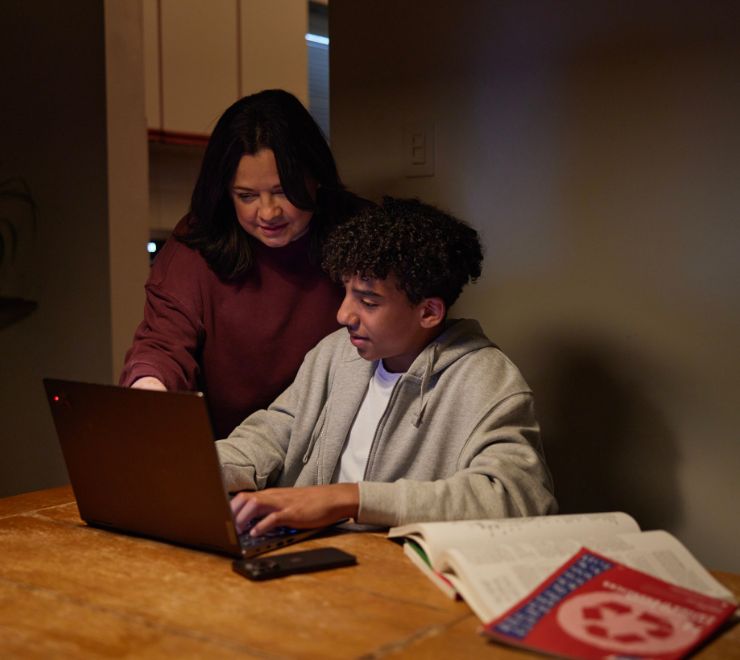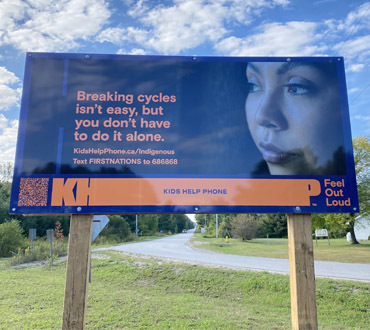This story was written by a member of Kids Help Phone’s National Youth Council (NYC).
When I was in middle school, I heard very little about what it means to struggle with mental health. There wasn’t a lot of talk about it in the media, in my friend group, in my family or in my community about the topic. We didn’t have guest speakers or classroom sessions where we talked about school/life balance, loneliness, depression or alienation. At the time, I didn’t think much of it. The importance of mental health was something I was aware of, but not really preoccupied by.
Perhaps that’s the way a lot of people feel before they themselves are personally touched by the impact of mental ill-health in their own lives. For me, that time came when someone I was quite close to found themselves struggling with depression and anxiety. The experience of that person, and the stories I’ve heard since from young people across Alberta and the rest of Canada, have shown me that my experiences growing up are the problem.
It was in fact a problem that I didn’t know — or think to learn more — about how important taking care of our mental health is before someone I personally knew was affected. It was a problem that my friends and I didn’t talk about our own psychological/emotional well-being with one another. It was a problem that I was never educated about — or exposed to — mental health resources in school. Lack of awareness is, in my mind, one of the biggest barriers young people face in getting the help they need.
Fortunately, many young people whom I’ve spoken to over the years have been able to find help because of a strong and understanding support structure. However, many still find themselves alone and unable to access the resources they need, when they need them. Unfortunately, in my experience, this is magnified in immigrant and historically marginalized communities.
For the last few years, I’ve helped organize an event where youth from these historically marginalized communities in Calgary come together to share their experiences with mental ill-health and how they’ve since found the help they need. One issue always rings clear — they don’t know where to get help and they face significant stigma when seeking it out.
Often, young people in these communities don’t feel comfortable talking to their teachers or their peers, because they feel they might be judged or excluded for what they’re experiencing. This issue is only compounded because many young people from these communities may feel like outsiders among their peer groups or within their schools. They may feel this way because there may not be anyone else like them around, and there may be fewer visible resources for them that reflect their language, cultural values, etc. Therefore, they may be less likely to reach out for support because of the social isolation they face. This stigma constitutes a significant barrier that prevents many young people I speak to from accessing mental health resources.
In addition, cultural beliefs regarding mental health can vary drastically, and the dynamics of every family are unique. This can result in many young people not being comfortable to go to their family for help when they need it most. These issues mean that a lot of young people don’t get the help they need and deserve.
What I’ve heard time after time is that we all need to be better at creating an environment where people are comfortable seeking help. We need to be willing to listen to our friends and our peers, even though it might be awkward or intimidating. We need to be willing to help those we care about find the resources they need when they’re at their most vulnerable. We need to be better at normalizing and destigmatizing mental health struggles earlier on, showing young people across Canada they can talk about mental health and not be marginalized or ridiculed because of it. Most of all, we need to expose young people to helpful resources (such as Kids Help Phone) early on, so that if they aren’t conformable speaking to others, they can reach out for help on their own terms whenever they’re ready to do so.











